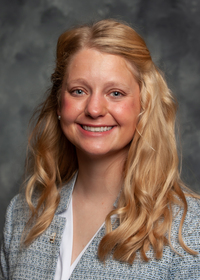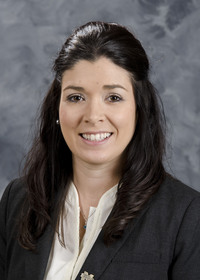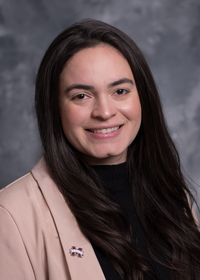Information Possibly Outdated
The information presented on this page was originally released on June 23, 2005. It may not be outdated, but please search our site for more current information. If you plan to quote or reference this information in a publication, please check with the Extension specialist or author before proceeding.
Extension lends trusted advice
MISSISSIPPI STATE -- For a producer running about 200 cattle at any one time, sound technical advice on a variety of issues -- from artificial insemination to marketing -- is invaluable.
Lee County producer Hamilton Smith said his local Mississippi State University Extension Service agents have provided assistance on numerous occasions.
"They give a lot of technical advice that's already been tried and proven. This keeps me from having to learn things through trial-and-error," Smith said.
These sound recommendations help producers like Smith avoid costly mistakes while improving the profitability of their herds.
"They've helped me with marketing of my cattle and formation of sales. They've helped me with artificial insemination -- the best tools and equipment to use and how to use them," Smith said. "They've helped me with cattle selection, pasture management and feed, getting hay sampled and so forth. They also help with all of my beef cattle management, herd management and shot recommendations."
Smith said Mike Howell, northeast district livestock area agent, is one of his sources of information. Howell, who has been with Extension for 21 years, said he spends about 75 percent of his time working directly with producers like Smith.
Howell said his goal is to resolve the problems and concerns of local livestock producers.
"The main thing producers are concerned about now is the general cost of production. On the surface, it looks as though the cattle industry is making a lot of money, but the cost of production keeps going up. That erodes the net profit considerably," Howell said.
Howell said he provides information on the national animal identification system being implemented by the U.S. Department of Agriculture in cooperation with the Mississippi Board of Animal Health. Producers want to know the ramifications, both positive and negative, of this program, and they want to understand the program and how to participate in it.
"Producers are interested in consumer perceptions," Howell said. "They want to raise the kind of animals that will produce food products consumers are willing to pay a premium for."
Howell said he feels a responsibility to work closely with producers to find the answers they need.
"It's important to me to be up-to-date and accurate with my information and to be practical in its application, to save producers some of the time they would have to spend searching for answers themselves," he said. "My biggest contribution is to be aware of the changes and communicate those to the producers."
Howell keeps his knowledge current through day to day involvement with Extension specialists in beef, forage and agricultural economics, and with veterinarians from MSU's College of Veterinary Medicine. He also attends seminars, visits other university Web sites and communicates with representatives in the feedlot industry.
Jane Parish, Extension beef specialist, said major educational programs offered by the Extension Service help keep livestock producers up-to-date on beef production issues. The Mississippi Farm to Feedlot program helps producers make profitable changes in their breeding, health and management programs. The Mississippi Beef Cattle Improvement Association uses MSU research and education to promote genetic improvement in the state's beef herds.
"Another popular program for livestock producers is the Cattlemen's Exchange," Parish said. "This is a very informal program where producers meet typically once a month to discuss relevant issues. Group marketing and purchasing efforts are potential outcomes of this unique educational program."
The Cattlemen's Exchange is designed to address in-depth issues and management practices for more progressive beef cattle producers. The Extension Service facilitates these producer group meetings throughout the state.
Ongoing research at MSU aims to help producers better manage their livestock operations and make profitable changes in breeding, health, nutrition and management programs. Extension forage specialist Richard Watson is working on projects at Mississippi Agricultural and Forestry Experiment Station research units that address the decreased nutritional quality of traditional Mississippi forages during the summer months.
"In one trial, we're looking at an alternative forage crop called chicory. It's a very high-quality forage crop, and although it's not a warm-season species, it does grow through the summer," Watson said. "In a trial at Holly Springs with stocker cattle, we got close to 500 pounds of gain per acre over a two-month period in the spring, and we're continuing to graze those through the summer and fall."
Researchers also are studying chicory as a high-quality crop to improve calf weaning weights. A Prairie trial is seeing similar success using sudan grass and a sorghum-sudan grass cross as alternative forage crops.



